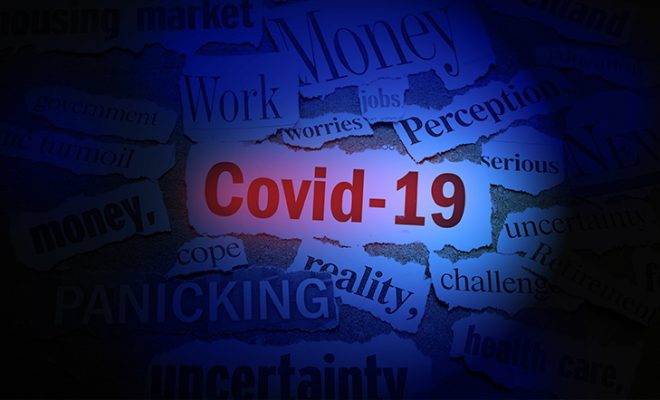6 Things You Should Know to Create a Robust Estate Plan

While a financial plan focuses on managing your finances during your lifetime, an estate plan is essential for determining the fate of your assets after you pass away. Estate planning involves the transfer of your assets to your heirs in the event of your passing. It outlines how your estate should be distributed and minimizes tax liabilities and legal complexities for your loved ones. Creating a robust estate plan can be an intricate process that requires attention to several legal, financial, and emotional considerations. Therefore, it is crucial to establish a comprehensive estate planning strategy.
A financial advisor can offer timely and personalized estate planning advice that can protect your assets and safeguard the financial well-being of your family members in your absence. This article will also help you understand how to do estate planning to ensure that you address all necessary aspects and create a foolproof plan that stands the test of time.
Table of Contents
Below are six things you should consider when creating a robust estate plan:
1. Estate planning is not a one-time thing
One of the fundamental estate planning tips to remember is that estate planning is not a one-time event. An estate plan includes various elements, such as specifying how your assets are distributed, determining who inherits them, assigning percentages of inheritance to different individuals, and more. It also includes provisions like revocable and irrevocable trusts, powers of attorney, health directives, and designating guardians for minor or special needs children. All of these considerations are influenced by your personal dynamics and relationship statuses that are likely to evolve over time.
For instance, you might designate your sibling as the guardian for your minor children today. However, your relationship with your sibling could change tomorrow due to various life events such as relocation or personal differences. In such a scenario, updating your estate plan to include a new guardian who is willing and readily available becomes necessary. Similarly, if your executor becomes sick, incapacitated, or passes away untimely, you will need a replacement to ensure your estate plan is not affected. As your children transition into adulthood, their ability to manage their own assets will increase. You need to revise your estate plan to reflect their changing roles and responsibilities. Your children’s evolving needs and your relationship with them can also significantly impact the direction of your estate plan. For example, if you have a child with special needs, you may need to establish a special needs trust that provides for their long-term care. Sometimes, children drift away from their parents as they grow older. In such a case, you may or may not want to include them in your will.
Changes in your marital status, such as marriage or divorce, also warrant updates to your estate plan and will. In the event of a divorce, you may remove your former spouse as a beneficiary and designate someone else. Conversely, getting married may prompt you to add the new spouse and their children, if any, to your estate plan to provide for them. Moreover, significant financial changes, such as acquiring new assets, such as a home or selling existing ones, such as a collectible, require a review of your estate plan. For example, if you purchase real estate or invest in gold, you need to ensure that these assets are suitably accounted for and distributed according to your wishes in your absence.
Therefore, it is crucial to view estate planning as an ongoing process. You can regularly review your estate plan, perhaps every few years, to ensure that it remains aligned with your individual and family needs. Additionally, major life events or financial changes also need immediate reassessment. Each milestone necessitates adjustments to your estate planning documents to ensure all your assets and personal dynamics are well accounted for.
2. Beneficiaries must match on all your accounts
One of the most overlooked aspects of retirement and estate planning is ensuring consistency among the names of your beneficiaries. Typically, all accounts and investments require a designated nominee. For example, your employer-sponsored 401(k) plan, Individual Retirement Account (IRA), 529 education savings account, mutual fund investments, bonds, and life insurance policies all have fields for specifying beneficiaries. In the event of your unfortunate passing, the designated beneficiary of each account is entitled to the funds within that account. However, discrepancies can arise when the beneficiary named on an account differs from the beneficiary named in your will. For instance, you might designate your spouse as the beneficiary of your 401(k) plan but specify your child as the beneficiary in your will for the same account. In such cases, the funds within the account will be disbursed to the beneficiary named on the account and not the one on your will. Therefore, it is crucial to ensure consistency in beneficiary designations at all times.
If you establish an account first and create your will later, you need to ensure that the same person is named as the beneficiary in both places. Often, individuals set up their 401(k) plans early in their careers when they may not yet be married or have children. However, as their relationship dynamics evolve with changes in marital status or parenthood, they may forget to update beneficiary designations on their accounts. While the correct beneficiary may be named in the will, this alone is insufficient. It is imperative also to update beneficiary designations on the account itself.
As time passes, many people tend to forget about these important details. Therefore, it is helpful to maintain a comprehensive list of all nominees and accounts. This makes it easier to monitor your investments and assets. Whenever you open a new account or make changes to existing investments, it is essential to review and ensure alignment between the designated nominees and your will. Additionally, it is vital to communicate your nominations to the designated beneficiaries to enable them to pursue the account proactively in the event of your absence. This practice not only fosters transparency but also ensures that your wishes are carried out effectively.
3. Estate planning goes beyond just a will
Estate planning is a multifaceted approach. Many people mistakenly equate it solely with creating a will. However, it is important to understand that a will is just a part of estate planning. A will is a document that serves as a legal instruction on what happens to your assets. For instance, if you have $1 million, you can specify that each of your three children and spouse gets $250,000 each. However, your estate plan will also include other things.
To begin with, your estate planning strategy can include your health directives. Health directives help you decide what happens if you are incapacitated. End-of-life situations, such as patients in vegetative states, render them unable to voice their preferences. At such a time, the health directives they set up are consulted to decide the next course of action. Two key elements in this regard are a living will and a health power of attorney. A living will specifies your medical treatment preferences, including pain management, and when these wishes apply, such as circumstances for organ donation, coma, brain inactivity, etc. This ensures that your body is dealt with as you wish and not left to the judgment of your family members or doctors, which may or may not align with your needs. A health power of attorney appoints a person to make decisions on your behalf in unforeseen situations like accidents.
Similar to the health power of attorney is the financial power of attorney. This appoints an administrator to handle financial matters on your behalf in case of your incapacitation. Various provisions, such as gift-making authority and property decisions, fall under the financial power of attorney’s purview. Given the significant authority granted to these persons, it is essential to choose them wisely. Appointees must be trustworthy and reliable. They should be unbiased and have your best interests at heart. You must also keep reviewing your powers of attorney. And, if you revoke or cancel old powers of attorney, then you must inform these people to ensure transparency at all times.
Another critical component of an estate plan is a trust. Trusts give you power over your assets and enable you to decide precisely how they should be used. There are different types of trusts, the most common ones being revocable and irrevocable trusts. A revocable trust is flexible and lets you change the terms at any time as per your wishes. For instance, if you establish a revocable trust for a child, granting access at the age of 25, but they require funds earlier for education, you can adjust the terms accordingly. On the other hand, an irrevocable trust cannot be revised after it is created without the beneficiaries’ consent or court approval. In such a case, if the child needs the funds sooner, you will need their consent and approval from the court.
All of these components are necessary parts of financial planning, and only when incorporated together, can you fully recognize all estate planning benefits.
4. Not making an estate plan will lead to probate
If you do not have an estate plan, the government usually steps in to take control of your estate. This process is known as probate. Probate essentially means that your estate undergoes a supervised process in court, after which it is decided how your assets will be distributed among your heirs. In this process, the court appoints an individual administrator to take charge of your estate. If you have any pending fees, debt, taxes, or penalties, the court uses your estate to pay these off. The remaining amount is then distributed among your heirs. When an estate undergoes the probate process, priority is usually given to your immediate family, including your spouse and children. In the case of larger families, the court may favor the first spouse and children, potentially overlooking other marriages or alternative estate plans you may have had.
While probate is an impartial process, with no bias or devious intentions from third parties, it does impose hassles on your family. Firstly, your intended loved ones may not receive a share of your estate as you wish. Even if they receive something, it may not necessarily be in the proportions you desire. Moreover, probate is a lengthy process, which can last up to a year in some cases. This can be inconvenient, primarily if your family members reside in different parts of the country or world. If your estate goes through probate, your family will also need to hire a probate attorney to represent them in court, which can be expensive. In some cases, families can pay up to 10% of the total estate’s value on probate. Furthermore, probate can lead to mental stress. Your family members may engage in disputes, leading to feuds and resentment. This stress can strain their relationships. Additionally, there is a risk of your personal, professional, and financial information becoming public. Moreover, the process of probate may differ from state to state, depending on the state laws on estate, property, and inheritance tax.
While probate can be a cumbersome and stressful process for your loved ones, it can be avoided with proper estate planning. Estate plans undergo probate when there is no will, so it is crucial to make one. The will should be as clear as possible, stating the exact shares and percentages for asset distribution. If you are not leaving something to someone, make sure to mention that, too. The more transparent and precise the will, the fewer chances there are for family members to dispute and for your estate to undergo probate.
Moreover, if you have a will but some of your assets are left out, the probate process will still apply to those assets. Any asset that still has your name without a designated beneficiary will undergo probate. Hence, it is imperative to be as detailed as possible in your will.
5. Taxes apply to your estate
In 2022, an estimated 7,600 total estate tax returns were filed, of which 3,900 were taxable. The total estate tax liability for the year amounted to $22.7 billion. In 2023, there were an estimated 7,100 total estate tax returns and 4,000 taxable returns. The estate tax liability increased to $24.0 billion in the same year.
Taxes should be a prime consideration in your estate planning strategy as they can take a large cut out of your estate. Therefore, you must understand how these will be levied to ensure you plan and prepare well and leave an estate your heirs can benefit from. Estate tax is imposed on the estate and is paid before assets are distributed to beneficiaries, while inheritance tax is levied on individuals who inherit the estate. The estate tax is a federal tax, but several states also impose it, including Washington, Oregon, Minnesota, Illinois, Maryland, Vermont, Connecticut, New York, Rhode Island, Massachusetts, Maine, and Hawaii. On the other hand, inheritance tax is not a federal tax but is imposed in some states, including Iowa, Kentucky, Maryland, Nebraska, New Jersey, and Pennsylvania. Maryland is the only state in the U.S. to impose both estate and inheritance tax.
While estate and inheritance tax are inevitable, you can avoid or minimize them with the right strategy. Here are some estate planning tips to avoid taxes:
a. Transfer your assets before death: If possible, you may transfer some of your assets before death under the gift exemption. The government allows you to transfer some of your assets to another individual up to a fixed limit each year. This is known as the gift tax exemption. In 2023, the annual gift exclusion stood at $17,000, allowing you to gift up to this amount to another person without incurring gift tax. This exclusion has been increased to $18,000 in 2024. Moreover, these gifts are separate from and in addition to your lifetime estate tax exemption, which was $12.92 million in 2023 and has been increased to $13.61 million in 2024. Understanding these allowances is essential for effective estate planning and maximizing the transfer of assets to your beneficiaries while minimizing tax liabilities.
b. Purchase a life insurance plan:Life insurance secures the financial future of your loved ones. It offers a guaranteed payout to your loved ones in your absence. Upon death, these plans give your beneficiary a pre-determined amount. This amount, even if paid in a lump sum, is generally exempt from any tax. This means that your heirs will not owe any inheritance tax on the payout received from your insurance plan and will get to keep the entire sum for themselves.
c. Move to a state without estate or inheritance tax: Tax laws differ in different states. Moving to a state with no taxes can significantly help you lower your overall tax liabilities on your estate. If you and your heirs live in tax-free states, you can retain more of your estate and pay minimal tax.
d. Use a Roth IRA: The funds in a Roth IRA can be passed down to your heir without incurring any estate tax. This is an effective way to pass on funds without incurring any tax. Instead of leaving money in your will, you can use a Roth account to do the same.
6. Hiring a financial advisor can simplify the estate planning process
Estate planning is a broad subject encompassing multiple considerations, such as tax and legality. Therefore, hiring a financial advisor can be instrumental in the process. A financial advisor can offer helpful estate planning tips to ensure your plan is foolproof. They can help you understand the tax laws in your state and how they apply to your estate. They can recommend gifting strategies, the use of Roth accounts, and more, and assist you in choosing the best course of action based on your individual circumstances.
Financial advisors specializing in estate planning can help draft a suitable will that covers all your assets. They ensure that nothing is overlooked, and everything is accurately accounted for. With their expertise and experience, you can minimize the chances of errors, enhance transparency, and lower the probability of your will undergoing probate. This not only alleviates stress for your loved ones but also reduces legal fees and safeguards your hard-earned assets. Moreover, financial advisors can assist in setting up trusts tailored to your financial needs. They help you select a suitable trust that protects your assets and ensures the financial well-being of your inheritors. They can explain the use and purpose of multiple trusts and enable you to select an option that best reflects your needs and those of your loved ones. Additionally, they can assist in creating power of attorneys – both financial and health – to ensure that all end-of-life decisions align with your preferences. This can facilitate smooth and prompt decision-making during critical times.
Hiring a financial advisor can also provide peace of mind, knowing that your estate will be managed effectively and will be rightfully passed on to its inheritor after your demise.
To conclude
Estate planning is surrounded by many misconceptions. Some believe it is only for the wealthy, while others think it should only be done after retirement when one is older and approaching the end. However, estate planning applies to everyone. It is a crucial component of personal finance that should never be ignored. Considering the unpredictability of life, securing your loved ones is essential, and estate planning helps you do this effectively. Therefore, aim to do so as soon as possible. For professional estate planning advice and help with doubts, you can hire a financial advisor to expedite the process.
Use WiserAdvisor’s free advisor match service to find a knowledgeable professional who can provide personalized insights tailored to your unique circumstances to secure your legacy. Simply answer a few questions about your financial needs, and our match tool can connect you with 2 to 3 advisors suited for meeting your financial goals.


















